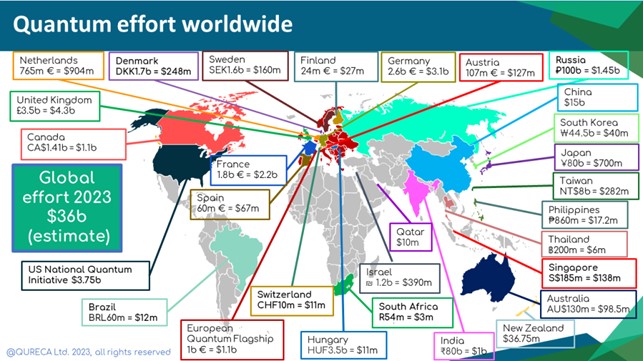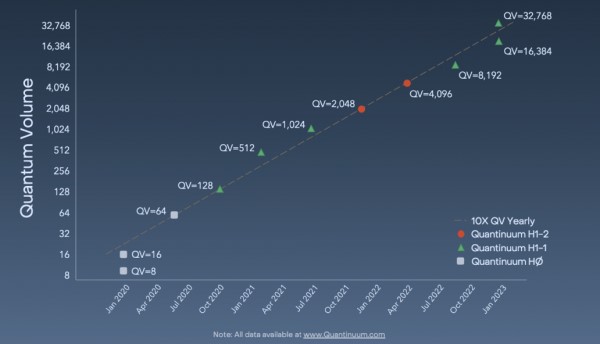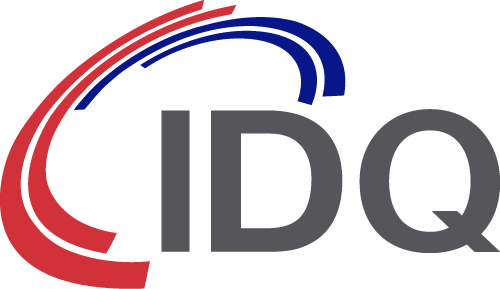Quantum Computing Review Q1 2023
Welcome to IDQ’s Q1 Quantum Review, 2023. Here we look back over the past 3 months and bring you some of the noteworthy stories from the world of quantum technologies. In this edition, the UK and Canada both launch National Quantum Strategies and there are further advances in the fields of quantum volume and error correction.
Global quantum initiatives
At the beginning of the year, the Canadian government launched its National Quantum Strategy. Backed by $360million in investment, the initiative will focus on three distinct areas of quantum technology: computing hardware/software, communications, and sensors. The aim is to enhance Canada’s standing in the quantum landscape, with significant investment in quantum research, the recruitment of talent and the commercialization on quantum technologies.
In March the UK announced it was to invest £2.5billion in a decade-long initiative to maintain its position as a leader in quantum innovation. Its National Quantum Strategy will see funding more than double the previous National Quantum Technologies Programme, which has benefitted from £1bn investment since being introduced in 2014. The programme was announced in the annual budget statement and will see the newly established National Quantum Computing Centre in Oxford play a pivotal role.
According to a new report from the European Commission on The EU’s Quantum Technology Flagship, Europe is leading the way when it comes to deploying quantum technologies. The report provides an assessment of the 10-year, €1Billion project to date, focusing on the ramp-up phase from 2018 to 2021. Highlights include more than 20 research projects undertaken, the establishment of 25 start-ups, the registration of over 100 patents and the publication of over 1,300 scientific papers. To date, the program has brought more than 1,500 scientists and 230 organisations together, including more than 100 universities. IDQ is proud to be a part of this initiative and to have participated to a number of QRNG and QKD projects, including OPENQKD, by supplying the majority of QKD systems and supporting the testbed and use case coordinators in all phases of the project.
The worldwide public quantum effort is now reaching around $36 billion according to Qureca, who released their latest update in January 2023:

Quantum advances
In February, researchers from the University of Sussex and Universal Quantum demonstrated qubits can directly transfer between quantum computer microchips, overcoming a major challenge to scalability. In a paper published in Nature Communications, the team successfully transported qubits with record breaking success and connection rates.
Later the same month, it was widely reported that Google had made a major breakthrough in error correction that represented a “major shift” in quantum computing. For the first time ever, their Quantum AI researchers have experimentally demonstrated that it’s possible to reduce errors by increasing the number of qubits. However, by their own admission, Google researchers said they were taking a “cautious” stance on the breakthrough.
Quantinuum, specialists in ion trap quantum computing, announced a new performance record, with its H1-1 system achieving a quantum volume of 32,768. Originally developed by IBM, quantum volume has become a recognized measure of quantum computing performance.

Intel has launched its Quantum Software Development Kit. Described as “a full quantum computer in simulation” it allows users to program quantum algorithms in simulation. Built to industry standard specs it integrates with C/C++ and Python applications.
Quantum investment
With the quantum computing marketplace expected to reach $125billion by 2030, investment in quantum start-ups and initiatives continues apace, with some significant sums being secured this quarter:
Israeli startup Quantum Machines announced a $20million extension to the $50million series B funding it secured last year.
Australian firm Q-CTRL raised $27millon, with Salesforce Ventures joining as a new investor.
London based Quantum Motion Technologies raised $50million (a UK record) in funding to support the company’s development of silicon quantum processors.
IDQ in the news
IDQ, KCS and SK Telecom release new quantum enhanced cryptographic chip
IDQ QRNG Chip certified as the only space-grade QRNG on the market
IDQ and University of Geneva set new QKD performance record
IDQ Chip features in DocuSign’s FIPS 140-2 L3 approved QSCD appliance


